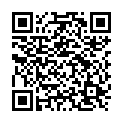|
|
|
| Module code: ABA-1.4 |
|
|
3U+5PA (8 hours per week) |
|
9 |
| Semester: 4 |
| Mandatory course: yes |
Language of instruction:
German |
Assessment:
Project work
[updated 30.10.2023]
|
ABA-1.4 (P120-0054) Architecture, Bachelor, ASPO 01.10.2021
, semester 4, mandatory course
|
120 class hours (= 90 clock hours) over a 15-week period.
The total student study time is 270 hours (equivalent to 9 ECTS credits).
There are therefore 180 hours available for class preparation and follow-up work and exam preparation.
|
Recommended prerequisites (modules):
ABA-1.3 Design 1 Urban Project - Advanced Project Urban Design 1
ABA-4.2 CAD 1 / Technical Drawing
[updated 11.10.2023]
|
Recommended as prerequisite for:
ABA-1.5
ABA-1.6
[updated 26.07.2024]
|
Module coordinator:
Prof. Dipl.-Ing. Eve Hartnack |
Lecturer:
Prof. Dr. Ulrike Fischer
Prof. Dipl.-Ing. Eve Hartnack
Prof. Dipl.-Ing. Jens Metz
[updated 11.10.2023]
|
Learning outcomes:
After successfully completing this module, students will:
be able to analyze a given building structure for strengths and weaknesses and adapt it to today´s quality standards.
be able to recognize the link between functional, constructive, design and spatial aspects of a task and the socio-cultural environment and be able to develop an architectural solution based on these links.
understand the relevance of participatory planning processes and develop initial competencies for future construction and social challenges in dialogue with citizens, stakeholders and authorities.
be able to recognize the interrelationships of urban design and open space, building design and to articulate these in an independent design project.
be able to work independently in a team.
be able to present their results in analog and digital form, discuss them with others, and deal constructively with criticism.
Learning outcomes of the field trip week at the beginning of the course:
Students will be able to:
plan, calculate, organize and carry out a field trip in a team.
critically analyze architecture on site and see it in a local, social, and temporal context.
recognize and interpret intercultural and international aspects.
[updated 30.10.2023]
|
Module content:
In dealing with society, it is imperative to discover the potential of existing buildings, to assess them correctly, to reorganize them, and to shape them in a dialogue.
New, changing requirements result from history, the genius loci and social change.
Conceptual design tasks that involve a whole repertoire, such as inserting, separating-connecting, layering, adjusting, modernizing, transforming, continuing or rebuilding need a solution.
Working with a functional program to formulate and solve an architectural concept.
Contents Advanced Urban Design Project 2
Analysis of the urban-spatial context and comparison of references
Understanding the concept of built and lived cities ("ville", "cité")
Development of design parameters for the independent exploration of structure, grain, and typology.
Designing based on the interaction of an urban planning approach and building design.
Field trip with no teaching at the beginning of the course.
[updated 30.10.2023]
|
Teaching methods/Media:
Supervised projects, presentations, study trips and workshop
[updated 30.10.2023]
|
Recommended or required reading:
Topic-related by arrangement
[updated 30.10.2023]
|


